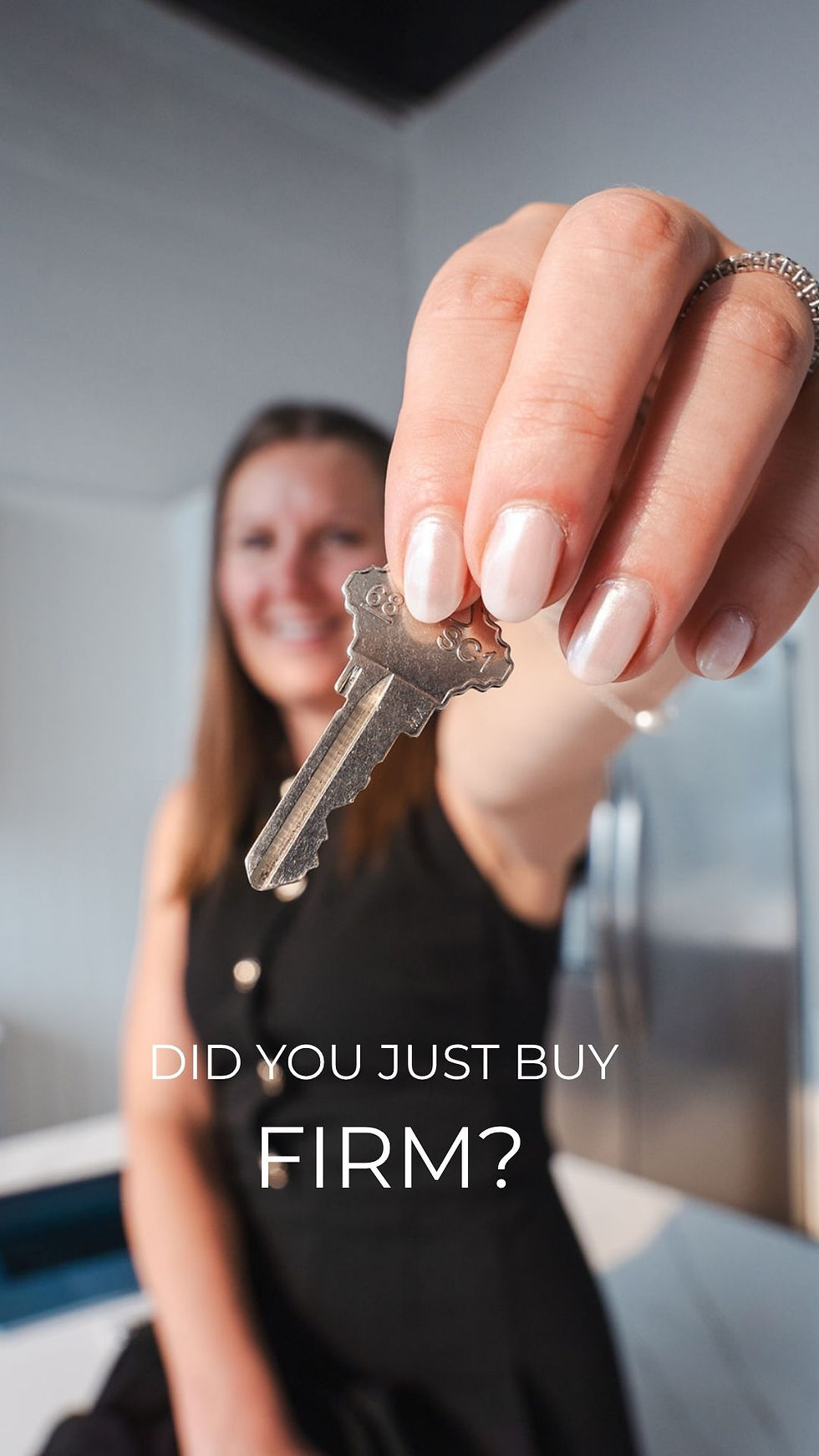Why Josh and I Chose a Cohabitation Agreement Before Buying Our First Home
- Emily Miszk
- Nov 21, 2024
- 3 min read
When Josh and I bought our first home together, we were young and not yet married. One of the less romantic, but necessary, steps in the process was drafting a cohabitation agreement. It’s one of those things, much like a will, that no one really wants to think about. Planning for the possibility that things might not work out long-term isn’t fun—it’s certainly not the stuff love stories are made of. But, despite that, we made the decision to put one in place.
Why? Well, we had different incomes, one of us contributed more to household expenses, and the other received family support. Given that we weren’t married, it just made sense to map everything out in advance. The idea was to protect both of us and ensure that our financial arrangement was clear from the beginning.
At the time, I turned to my trusted lawyer, Alessandra Ocampo from Vantage Law, for guidance. She explained some of the reasons why a cohabitation agreement could be beneficial for unmarried couples buying a home together. Below are a few of the key points she emphasized:
Uneven Contributions to the PropertyIf you and your partner are making different financial contributions toward the home—whether it’s for the down payment, mortgage payments, or household expenses—a cohabitation agreement helps outline exactly who is responsible for what. This can avoid potential confusion or conflict later on.
Beyond Just Property OwnershipCohabitation agreements aren’t just about the property. They can also cover other assets, liabilities, or financial obligations that might come into play throughout your relationship. It’s a way to ensure that everyone’s on the same page about the division of financial responsibilities.
Clarity in Case of Relationship DissolutionIf you don’t have an agreement in place and you end up getting married, it can become unclear how to divide assets and liabilities if the relationship dissolves. A cohabitation agreement brings clarity and fairness to the process, even if it’s something you hope you’ll never need.
Cost of a Cohabitation AgreementThe cost of drafting a cohabitation agreement will depend on the complexity of your situation. More intricate financial arrangements may cost more, but it’s important to think of this as an investment in protecting both yourself and your partner.
In the end, while it wasn’t the most enjoyable part of our home-buying journey, getting a cohabitation agreement was one of the smartest decisions we made. It gave both of us peace of mind and helped us avoid future uncertainty. For any couples thinking about buying a home together before tying the knot, I strongly recommend considering this step. As unromantic as it may feel, it’s an important way to protect both of your financial interests.
For more information about cohabitation agreements, feel free to contact my go-to lawyer, Alessandra Ocampo at Vantage Law, who has always been incredibly helpful in guiding her clients through these kinds of decisions. Alessandra is able to assist in connecting you with a great family lawyer while at the same time handling your new home purchase, facilitating the closing and personalizing your home ownership experience.
Alessandra B. Ocampo, B.A., J.D. (Hons)
Principal Lawyer
O: 905 851 9777 | F: 905 901 5525
13 Roybridge Gate, Unit 1, Vaughan ON L4H 4E6
If you have any questions about how homeownership can fit into your financial goals, visit www.emilycallme.com.












Comments